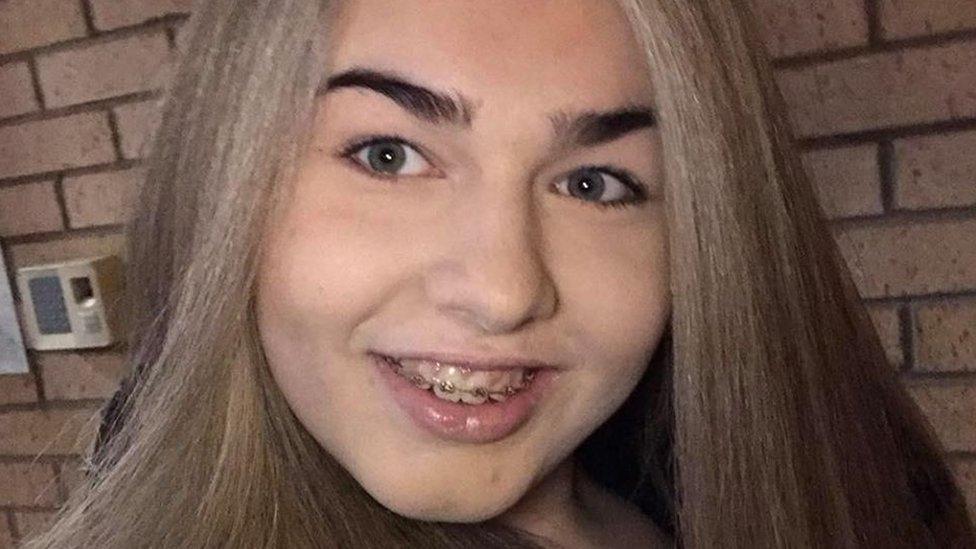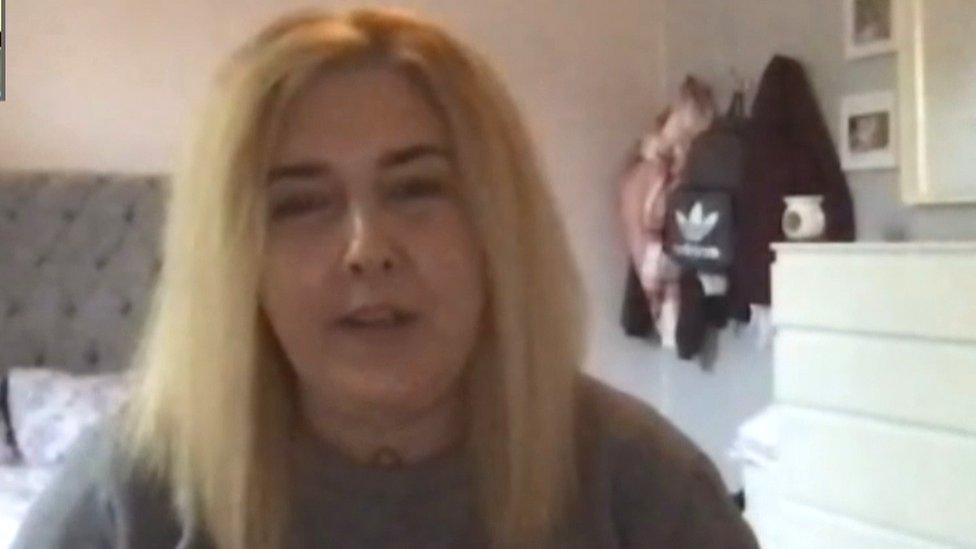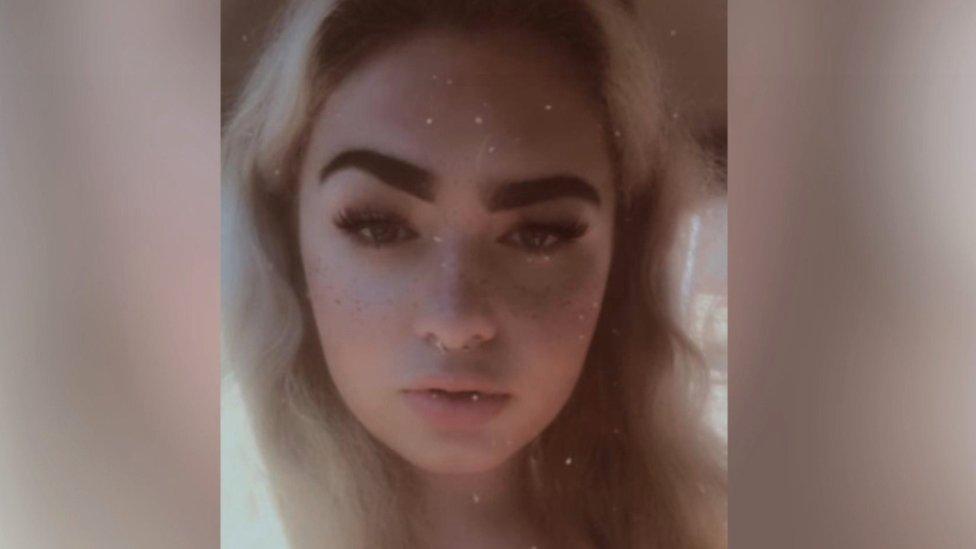Mother in legal fight to save dead transgender daughter's sperm
- Published

Ellie Anderson had her sperm frozen at the age of 14 in the hope of one day becoming a parent
A Scottish woman is preparing to take legal action to prevent fertility doctors from destroying her transgender daughter's frozen sperm.
Louise Anderson wants to use the frozen sperm of her daughter, Ellie, to produce a grandchild.
Ellie, who lived in Stirling, died suddenly in July aged 16.
She was transgender and identified as a girl. Ellie had her sperm frozen when she was 14 so she could eventually have her own biological children.
Her mother wants to honour her wishes posthumously, using Ellie's sperm, an egg donor and a surrogate.
Solicitors acting on Louise's behalf plan to take the case to the Court of Session in Edinburgh.

Louise Anderson wants to use an egg donor and a surrogate to have her daughter's child
Ms Anderson said Ellie had known she was transgender from an early age.
"As a teenager she delayed hormone blockers to save her sperm to enable her to have her own biological children. She had made me promise that if anything were to happen to her, her children would be brought into the world."
She told BBC Scotland: "I am going to do everything I can to honour her wishes - not just for her but for anyone else who is caught in this position. It kind of sparked a little fire in my belly and I want to make her wishes come true."
Ellie's sperm was frozen at Glasgow Royal Infirmary Fertility Clinic but it has told Ms Anderson the sample cannot be retained.
Under present UK human fertilisation rules, if Ellie was in a relationship when she died, her partner would have had the right to ask for her sperm to be retained. Her mother does not have that right.
Court order
Lawyers may seek a court order preventing it from being destroyed.
Solicitor Virgil Crawford, who is acting for Louise, said it was an "unusual, interesting, important and complex legal issue".
"What we're trying to achieve would be to get an order from the court that Ellie's mum would be entitled to make use of her sperm for the purpose that Ellie intended - that being to create a genetic child of hers and a grandchild for Ms Anderson."
Failing that, they would hope the court would say the existing law needs to be changed.

Ellie Anderson identified as a girl from an early age
David Obree, a fellow in medical ethics at the University of Edinburgh, told the BBC that he believes Ellie's transgender status is "irrelevant".
He said: "The key question is what did she intend the sperm to be used for? The question the court will need to look at is did she specifically consent or request that her sperm be used by a third party?"
Ellie, who had started taking female hormones, died in Forth Valley Hospital after falling ill in Lower Bridge Street, Stirling.
She was a pupil at St Modan's RC High School and had secured a place at City of Glasgow College to study hairdressing.
Her death is described as "unascertained".
A spokeswoman for NHS Greater Glasgow and Clyde, which runs the fertility clinic, said: "We are sorry to hear about this young woman's death and our sympathies are with her family.
"Glasgow Royal Infirmary Assisted Conception Services is licensed and regulated by the Human Fertilisation and Embryology Authority. The storage of gametes (sperm) is managed in line with the Human Fertilisation and Embryology Act (1990) and complies with the consents provided by the donors."